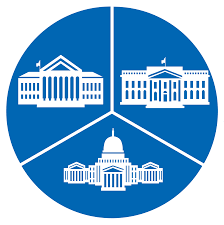What type of thinking was important to the Scientific Revolution & the Enlightenment?
Logic, Reason, Empiricism, Observations
What were two causes of the French Revolution?
France was in debt, There wasn't enough bread, Society was unequal, Too many taxes, People wanted democracy
What is one thing that all of the revolutions have in common?
Getting Rid of Monarchy, Military Conflict, Inspired by Enlightenment Ideas
What was the big effect of agricultural innovations in during the first industrial revolution?
Which economic system do most countries have today?
Capitalism (with some socialist policies)
John Locke said everyone are born with rights such as 'life, liberty, and property'. What are those called?
Natural Rights
What big benefit did the USA get from Napoleon?
The Louisiana Purchase
Which revolution was led by formerly enslaved people?
What was the first Asian state to begin rapid industrialization in the 1800s?
Japan
What is the role of government in Capitalism?

Why did Montesquieu think governments should have a 'separation of powers'?
To keep any part of government from becoming too powerful, Checks and Balances
What was the 'Reign of Terror'?
Maximilien Robespierre, the Committee of Public Safety, and Guillotine Executions
What policy did the Monroe Doctrine put in place?
What are two reasons the Industrial Revolution started in Great Britain?
Resources, Waterways, Innovations, Legal Protections, Empire
Who owns the means of production under Communism?
Where do you find 'popular sovereignty' in the government of the U.S.A.?
Voting for Representatives, Voting for President
Who were two leaders of the French Revolution?
Napoleon, Louis XVI, Maximilien Robespierre, Marquis De Lafayette
Which country in Latin America became independent through relatively peaceful means?
What were the two biggest ways steam power helped business during the first industrial revolution?
Transportation and Textile Industry
What was the purpose of Labor Unions?
Workers came together in order to improve working conditions.
The Napoleonic Code
Before the French Revolution, France had what type of ruler (with total control)?
Absolute Monarchy, Absolutism
What is the difference between left-wing and right-wing politics in the 1800s?
Left Wing = Liberal, Democracy, Natural Rights
Right Wing = Conservative, Monarchy
Electrical = Cameras, Light Bulb, Telegraph, Phonograph, etc.
Chemical = Oil, Ammonia Synthesis, Steel (Bessemer Process)
What were two problems associated with Industrial Capitalism?
Low Wages, Long Work Hours, Child Labor, Exploitation, and Unsafe Working Conditions
What do you give up, and what do you get under the 'social contract'?
People give up rights/freedoms to get safety/order.
What were the Three Estates of France? Who was in each?
1st Estate = Clergy / Church
2nd Estate = Nobility / Aristocracy
3rd Estate = Everyone else, 97% of France
In what meeting did the leaders of Europe decide to rebuild Europe with monarchies and try to prevent future liberal revolutions?
The Congress of Vienna
What is a country that was slow to industrialize? And what was a reason a country might be slow to industrialize?
Reasons = Traditions, Imperialism, Secrecy
What were the two terms used by Marx for the workers and the owners of the means of production?
Proletariat = Workers
Bourgeoisie = Owners